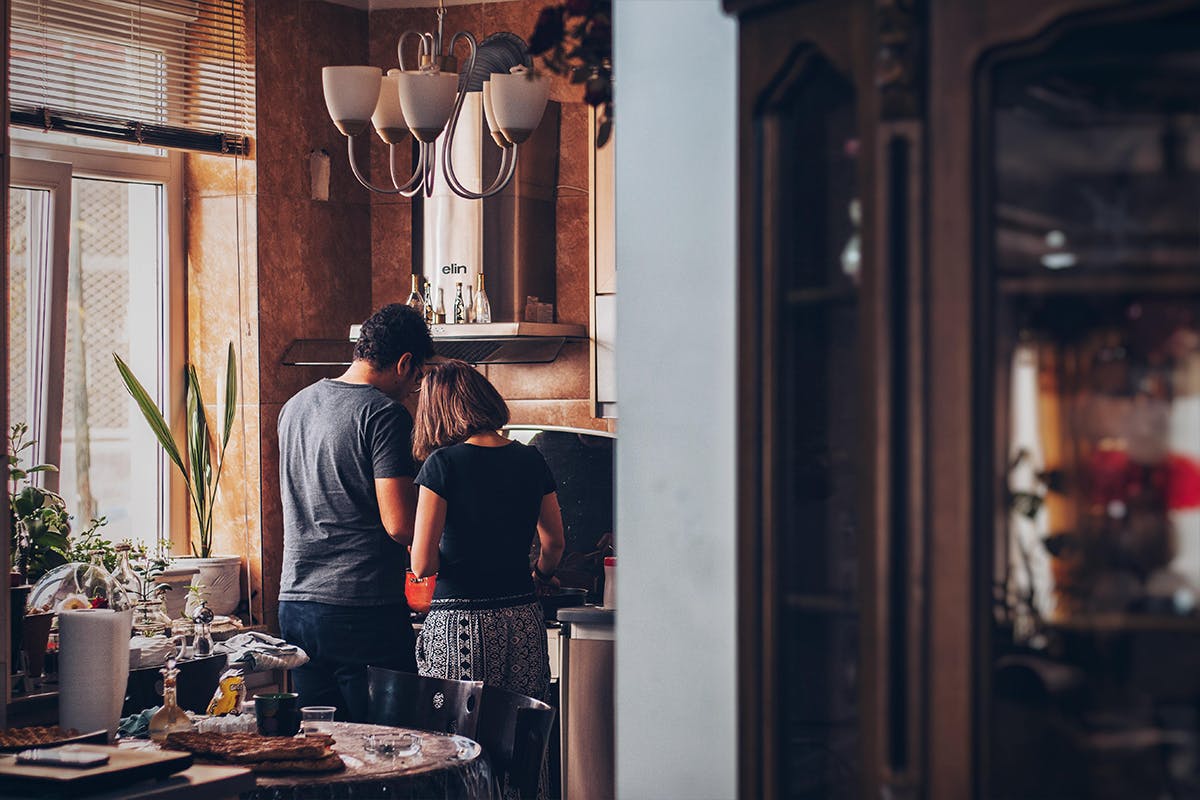What is a deed of trust?
If you’re buying a house with a partner, friends, siblings or with parental help, you might have been told you need a deed of trust. But what actually is a deed of trust?
Find out exactly what a deed of trust is and why you might need one in this essential guide.
In this guide
- What is a deed of trust?
- Do I need a deed of trust?
- Is a deed of trust legally binding?
- Who signs a deed of trust?
- Who is the beneficiary in a deed of trust?
- Is a deed of trust proof of ownership?
- Is a deed of trust the same as a mortgage?
- Where is a deed of trust recorded?
- Are deeds of trust public record?
- How long does a deed of trust last?
- Can you sell a house with a deed of trust?
- Does a will override a deed of trust?
- What does deed of trust look like?
- How to get a deed of trust
- How much does a deed of trust cost?
- Can a deed of trust be backdated?
What is a deed of trust?
In the UK, a deed of trust is a document that states how the ownership of a property is divided amongst its owners. Sometimes called a Declaration of Trust, a deed of trust is used by those who have a tenants in common mortgage - meaning that the mortgage is divided in a way that is not a simple 50/50 split. If you have loved ones who are helping you purchase your first home, a deed of trust might also outline the financial help they are providing.
Learn more about how your parents can help you buy a home with a guarantor mortgage here.
Do I need a deed of trust?
If you are buying a property with others, such as a partner, friend, sibling or your parents, you might need a deed of trust to outline how much equity each person owns property if there is no other legal agreement between you. It makes it clear who owns what, so it’s clear and agreed to by all parties.
If you want to help your son or daughter buy a house, but they are buying with someone else, a deed of trust can protect your contribution without you being named on the property title deeds.
Is a deed of trust legally binding?
Yes, a deed of trust is legally binding. It outlines how assets in trust are dealt with, and is agreed to by all prospective buyers before the house purchase. All owners will sign the deed of trust to agree to its statements.
Who signs a deed of trust?
All owners of the property sign the deed of trust, as well as anyone else who is a beneficiary (normally the lender who lends you the mortgage) or has a financial interest in the property.
Who is the beneficiary in a deed of trust?
A beneficiary in a deed of trust is normally the lender who provides your mortgage loan. The owners of the property are the trustees, who hold the property “in trust” on behalf of the lender.
Is a deed of trust proof of ownership?
A deed of trust is supposed to outline true ownership, so can be used as evidence of ownership. This is because it’s a legal document that details who owns what share of the property, and who receives what share of proceeds if the property is sold.
Is a deed of trust the same as a mortgage?
No, a deed of trust is not the same as a mortgage. A deed of trust is the document that legally outlines how much each owner is entitled from the equity in the property. A mortgage is a loan provided to you by a lender, which you borrow to purchase the property along with your house deposit.
If you are buying a home with others and have unequal shares, you’ll need to get a tenants in common mortgage. The deed of trust will then outline how much each person owns.
You’ll need to get approved for a mortgage before getting a deed of trust. This is because you’ll need to know you can purchase the property in the first place, before putting down on paper how much each person owns and is entitled to.
Want to speak to our award-winning team?
Whether you're looking to understand your options when it comes to buying with a loved one, or with a loved one's help, or you're ready to buy now - why not book a free 15-minute call with one of our team!
Where is a deed of trust recorded?
You can register a deed of trust at the Land Registry so that it is recorded on the public record. This can help if you ever need to enforce a change of ownership.
Are deeds of trust public record?
If you register your deed of trust with the Land Registry, then yes it will be recorded on the public record.
How long does a deed of trust last?
A deed of trust lasts as long as all parties hold equity in the property, and the mortgage loan is not yet paid off in full. In order to remove other parties from the deed of trust, all parties must agree for the document to be updated or you need to remortgage and buy the other owners out. If you own the property with your partner and decide to get married, the deed of trust will be superseded by the Matrimonial Causes Act, which dictates how a court acts when settling a divorce.
However, the court will still consider the Declaration of Trust during a divorce as an indicator of the couple’s intentions, but they don’t have an obligation to honour the terms set out in the deed. To make things clearer, if you decide to get married you can replace your deed of trust with a pre-nuptial or post-nuptial agreement.
Can you sell a house with a deed of trust?
Yes, you can sell a house with a deed of trust, but all parties must agree to the property sale. The funds from the sale will be divided according to the ownership split set out in the deed, as well as paying back your lender if you still have an outstanding mortgage balance.
Need to know
If you’re selling the house for less than you bought it, you’ll need approval from your lender first.
Does a will override a deed of trust?
With a tenants in common mortgage, each owner’s share is independent and does not automatically pass to the other owner on their death. Instead, their share will pass to their beneficiaries as outlined in their will, or their relatives if it’s not outlined in the will. Another owner cannot dictate who the other owner’s share is passed to, even if they’ve put it in their will. This is because they are not entitled to the other owner’s share as a tenant in common. For more information on this, we’d advise you to speak to an independent solicitor or lawyer.
What does deed of trust look like?
A deed of trust is usually a document, either paper or digital, that is normally drafted up by a solicitor. Typically a deed of trust will include the names of those involved, the land registry, purchase price, the deposit or downpayment on the property, mortgage loan size and repayments. It will also detail how the equity in the property is divided amongst those involved.
How to get a deed of trust
To obtain a deed of trust, you'll need a solicitor to draft one up for you, which you and all other parties will then sign.
How much does a deed of trust cost?
Traditionally, you would pay a solicitor to draft up a deed of trust for you, which they will charge for. The cost of a deed of trust created in this way can vary from solicitor to solicitor, but you could be charged anywhere between £100-£1,000.
Can a deed of trust be backdated?
No, you cannot backdate a deed of trust. It can however be retrospective, but only in particular circumstances.You can update your deed of trust at a later date, but this must be agreed to by all parties. It’s always best to set up a deed of trust before the purchase of the property so it’s clear from the beginning how the equity in the home is divided amongst owners.
You might be interested in: How to buy someone out of a property?



